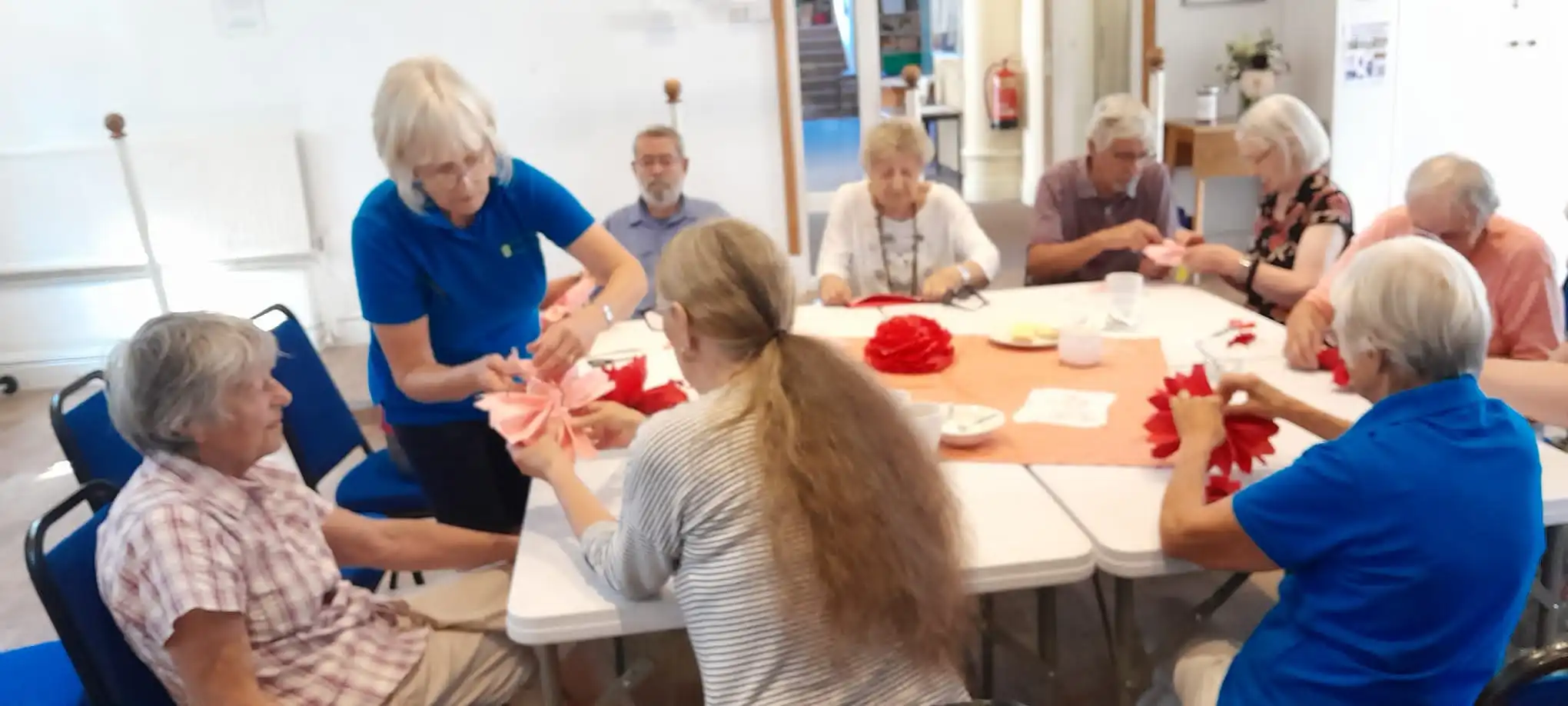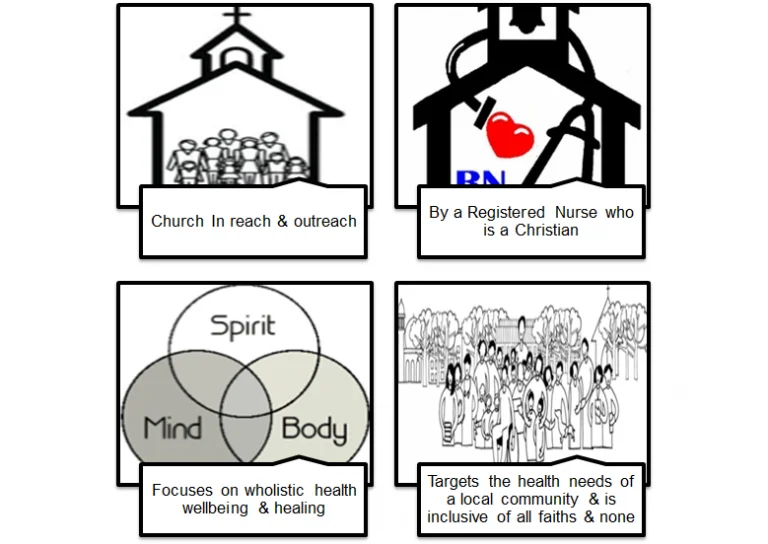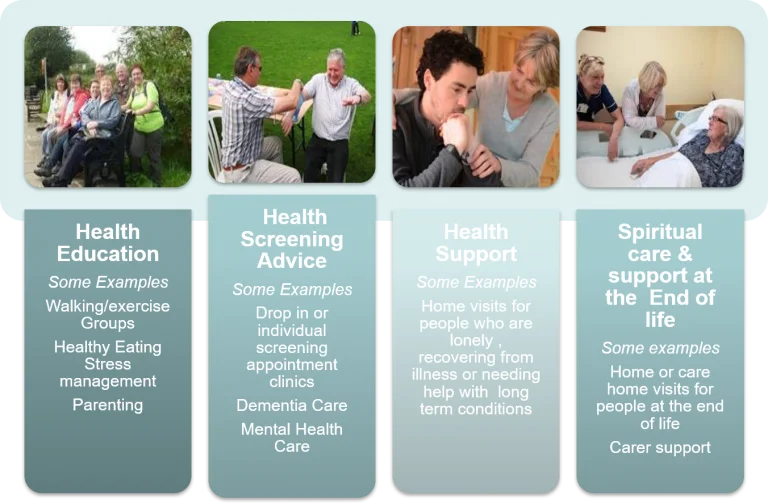WHAT IS PARISH NURSING?


Parish Nursing is all about supporting people and communities towards whole person healthcare. It can happen through a local church of any denomination.
For an introduction to parish nursing please watch this video: Introduction Video
International and national evidence shows that parish nursing is effective in:
- Helping people to maintain their health and wellbeing by providing health education, advice and information to people of all backgrounds or from a defined social or demographic group and making onward referrals as required.
- Helping people to recover their health and wellbeing by providing short-term or transitional nursing care and support to people who are self, congregation or externally referred as a result a temporary illness, disability or health need.
- Helping people to self manage their long-term health care by providing individual or group interventions for people who are self, congregation, or externally referred due to enduring health conditions that require lifelong treatment.
- Helping people in the final stages of life who are self, congregation or externally referred for non-specialist palliative care.
Parish nurses work with people of all ages and backgrounds, those with any faith or none.


If prescriptions, dressings, injections, or help with personal care are needed, they are provided by the health and social care services, but the parish nurse can be the link, ensuring that people use the health services appropriately, and understand their medication, care and condition.
They can help to prevent hospital admissions by following up people who have been discharged from care, are at risk, or have early signs of health problems. They train and coordinate volunteers to provide extra support during times of crisis, or combating loneliness. They encourage exercise and healthy nutrition, so that preventable diseases are less likely to ensue. They help young people to understand the dangers of unhealthy behaviours. They may organise events such as a men’s health breakfast, where a GP is invited to speak about the early signs people should watch for in regard to their health, a health fair, or a course on stress management for busy executives.

